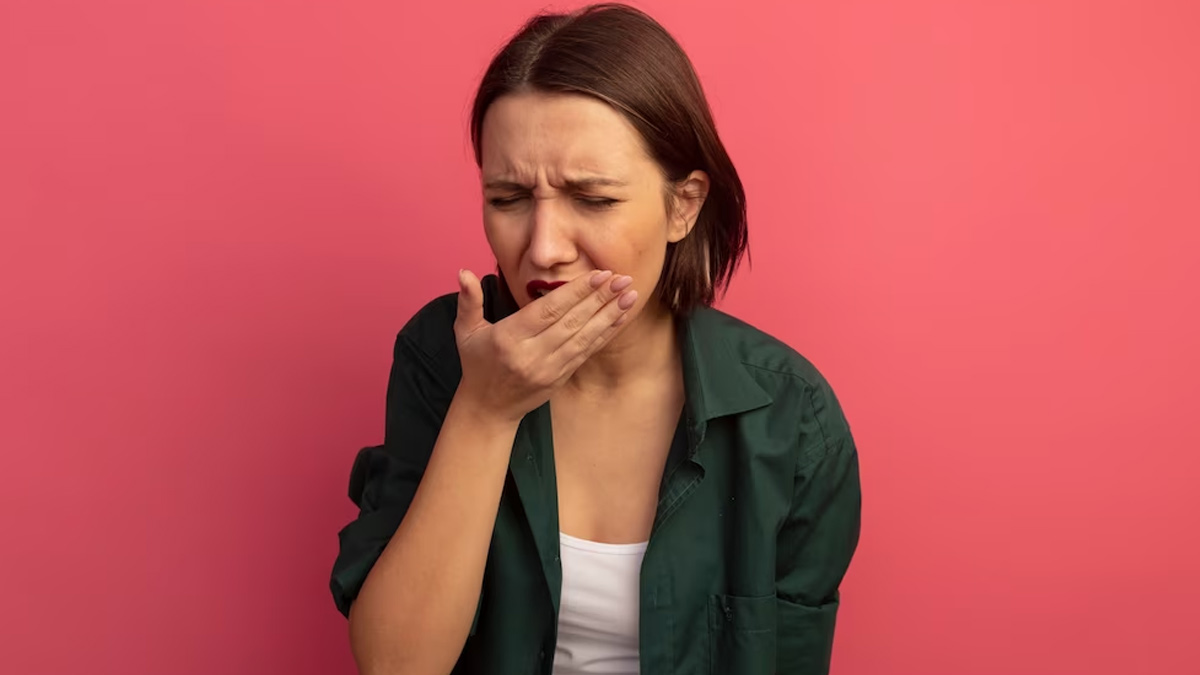
Experiencing a persistent bad taste in the mouth can be an unpleasant and bothersome issue. It can interfere with the enjoyment of food and beverages, impact our social interactions, and even indicate underlying health concerns. Understanding the potential causes of a constant bad taste is crucial for addressing the problem effectively. To know more about the reasons behind a constant bad taste and discuss strategies to get rid of it, we spoke to Dr Nihal Yadav, BDS, Amayra Dental Clinic, Kaushik Enclave, Burari, Delhi and Former Resident, Deen Dayal Hospital, Hari Nagar, Delhi.
Table of Content:-
Reasons For Constant Bad Taste
Here're the reasons for bad taste, according to the doctor.
Poor Oral Hygiene
Dr Nihal said, "Inadequate oral hygiene practices, such as infrequent brushing, flossing, and tongue cleaning, can lead to the buildup of bacteria, plaque, and food particles in the mouth. This accumulation can result in a persistent bad taste and contribute to issues like halitosis (bad breath)."
Dry Mouth

Insufficient saliva production, known as dry mouth or xerostomia, can cause a constant bad taste. According to the National Health Services, dry mouth can decrease or alter the sense of taste.
To this, the doctor added that saliva helps cleanse the mouth and neutralise acids, but reduced saliva flow can result from factors, such as medication side effects, dehydration, or medical conditions. "This can lead to an altered taste sensation and an unpleasant mouth feeling," he added.
Also Read: Home Remedies To Ease Dry Mouth
Medications
"Certain medications, including antibiotics, antihistamines, and antidepressants, can cause a lingering metallic or bitter taste in the mouth," said Dr Nihal. He added that this side effect is temporary and typically resolves once the medication is discontinued or adjusted, but it is advisable to consult a healthcare professional for guidance.
Sinus Infections

"Sinusitis, or a sinus infection, can lead to post-nasal drip, where excess mucus drains from the sinuses into the back of the throat. This can result in a foul taste, often described as a combination of mucus and pus, affecting the sense of taste," he added.
Acid Reflux
According to Dr Nihal, "Gastroesophageal Reflux Disease (GERD) can cause stomach acid to flow back into the oesophagus and reach the mouth, resulting in a sour or bitter taste." He suggested that managing GERD through lifestyle changes, dietary adjustments, and medical treatment can help alleviate this symptom.
How To Get Rid of Bad Taste
Here's how you can get rid of bad taste, as per the doctor,
Maintain Good Oral Hygiene
"Brush your teeth at least twice a day, floss regularly, and clean your tongue with a tongue scraper or toothbrush to keep your oral cavity clean," he suggested. "You can use antimicrobial mouthwashes to help control bacteria and keep your breath fresh," he added.
Stay Hydrated
Dr Nihal recommended drinking an adequate amount of water throughout the day to combat dry mouth. "You can consider using sugar-free chewing gum to stimulate saliva production. However, keep in mind to avoid excessive consumption of caffeine and alcohol, as they can contribute to dehydration," he added.
Also Read: Why Hydration Is Important For Your Oral Health, Dentist Explains
Review Medications

If you suspect that medications are causing the bad taste, consult with your healthcare provider. They may be able to adjust the dosage or prescribe an alternative medication that does not have this side effect.
Treat Underlying Conditions
"If a sinus infection or GERD is the root cause, seek appropriate medical treatment. Antibiotics or nasal irrigation can help alleviate sinusitis, while lifestyle modifications and medications can assist in managing GERD symptoms," said Dr Nihal.
Conclusion
A constant bad taste in the mouth can significantly impact our daily lives and may be indicative of underlying oral or systemic health issues. If the problem persists or worsens, it is advisable to consult with a healthcare professional or dentist for a thorough evaluation and personalised recommendations.
[Disclaimer: This article is for informational purposes only. Consult your healthcare provider to get a thorough diagnosis and treatment as per your health needs.]
Image Credits: freepik
Also watch this video
How we keep this article up to date:
We work with experts and keep a close eye on the latest in health and wellness. Whenever there is a new research or helpful information, we update our articles with accurate and useful advice.
Current Version